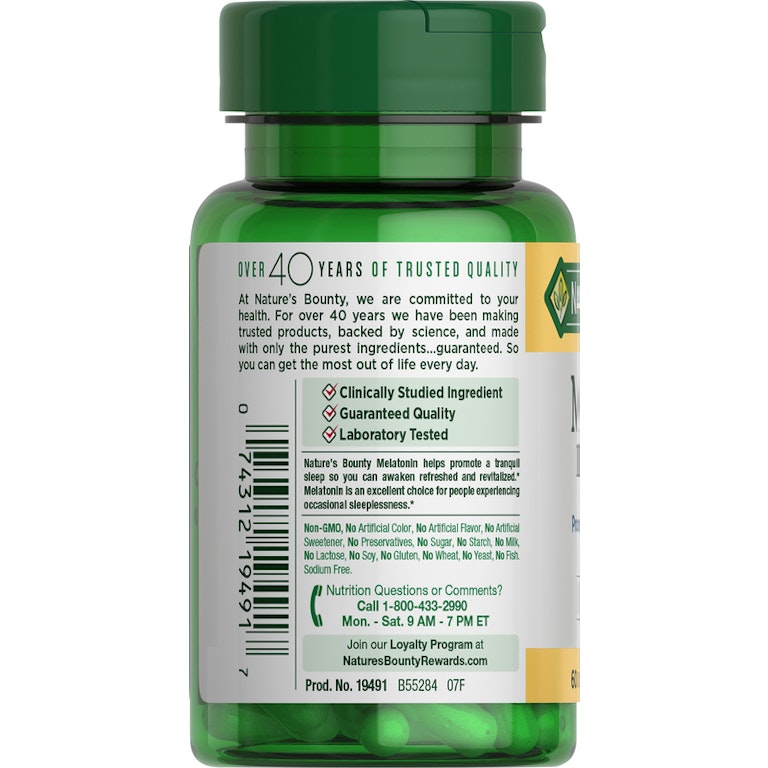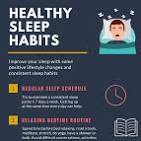Is Melatonin a Sleeping Pill?
Many people turn to melatonin as a natural remedy for sleep issues, but is it accurate to consider melatonin a sleeping pill? Let’s delve into the details.
Melatonin is a hormone produced by the pineal gland in the brain that regulates the sleep-wake cycle. It plays a crucial role in signaling to the body when it’s time to sleep and wake up. Supplemental melatonin is often used to help with sleep disorders like insomnia or jet lag.
Unlike traditional sleeping pills, which typically induce drowsiness directly, melatonin works by adjusting the body’s internal clock and promoting relaxation. It doesn’t have sedative properties like prescription sleep medications do.
While melatonin can be effective for some individuals in improving sleep quality and duration, it may not work for everyone. Factors such as dosage, timing of intake, individual differences in response, and underlying causes of sleep disturbances can influence its efficacy.
It’s essential to consult with a healthcare provider before using melatonin or any other supplement for sleep-related issues. They can provide guidance on proper dosage, potential interactions with other medications, and help address any underlying health concerns contributing to your sleep problems.
In conclusion, while melatonin is often used as a sleep aid, it differs from traditional sleeping pills in how it influences the body’s natural sleep-wake cycle. It’s important to understand its mechanism of action and limitations before considering it as a solution for your sleep troubles.
Understanding Melatonin: Answers to Common Questions About Its Role as a Sleep Aid
- What is melatonin and how does it work?
- Is melatonin considered a sleeping pill?
- How does melatonin differ from traditional sleeping pills?
- Can melatonin help improve sleep quality?
- Are there any side effects associated with taking melatonin?
- Should I consult a healthcare provider before using melatonin as a sleep aid?
What is melatonin and how does it work?
Melatonin is a hormone naturally produced by the pineal gland in the brain that plays a vital role in regulating the sleep-wake cycle. Often referred to as the “hormone of darkness,” melatonin levels rise in response to darkness and decrease with exposure to light. This natural process helps signal to the body when it’s time to sleep and wake up. When taken as a supplement, melatonin can help adjust the body’s internal clock, making it an effective aid for managing sleep disorders like insomnia or jet lag. By promoting relaxation and influencing circadian rhythms, melatonin can support better sleep quality and duration for individuals experiencing difficulties with their sleep patterns.
Is melatonin considered a sleeping pill?
Melatonin is often mistaken for a sleeping pill due to its association with improving sleep quality and regulating the sleep-wake cycle. However, it is important to note that melatonin is a hormone naturally produced by the body to signal when it’s time to sleep and wake up. While supplemental melatonin can be used as a sleep aid, it functions differently from traditional sleeping pills by adjusting the body’s internal clock rather than inducing sedation. Consulting with a healthcare provider is recommended before using melatonin or any other supplement for addressing sleep-related issues to ensure safe and effective usage.
How does melatonin differ from traditional sleeping pills?
Melatonin differs from traditional sleeping pills in its mechanism of action. While traditional sleeping pills typically induce drowsiness directly, melatonin works by adjusting the body’s internal clock and signaling when it’s time to sleep and wake up. Unlike sedative properties found in prescription sleep medications, melatonin promotes relaxation and helps regulate the sleep-wake cycle naturally. It’s important to recognize this distinction when considering melatonin as a potential remedy for sleep issues, as its effects may vary based on individual factors and underlying causes of sleep disturbances. Consulting with a healthcare provider can provide valuable insights into how melatonin differs from traditional sleeping pills and whether it’s a suitable option for improving sleep quality.
Can melatonin help improve sleep quality?
Melatonin is often sought after as a natural remedy to improve sleep quality. While it is not a traditional sleeping pill, melatonin can play a significant role in regulating the body’s internal clock and promoting relaxation, which may contribute to better sleep. Research suggests that melatonin supplementation can be beneficial for individuals with sleep disorders like insomnia or jet lag by helping them fall asleep faster and potentially enhancing the overall quality of their sleep. However, it’s essential to consult with a healthcare provider before using melatonin to address any underlying causes of sleep disturbances and determine the appropriate dosage and timing for optimal results in improving sleep quality.
Are there any side effects associated with taking melatonin?
When considering the use of melatonin as a sleep aid, it’s important to be aware of potential side effects that may arise. While melatonin is generally well-tolerated by most individuals, some common side effects include daytime drowsiness, dizziness, headaches, and mild stomach discomfort. In some cases, people may also experience vivid dreams or nightmares, irritability, and reduced body temperature. It’s crucial to follow recommended dosages and consult with a healthcare provider if you have any concerns or experience persistent side effects while taking melatonin.
Should I consult a healthcare provider before using melatonin as a sleep aid?
It is highly recommended to consult a healthcare provider before using melatonin as a sleep aid. While melatonin is a natural hormone and widely available over-the-counter supplement, it can still interact with certain medications or underlying health conditions. A healthcare provider can offer personalized advice on the appropriate dosage, timing of intake, and potential risks or side effects associated with melatonin use. Additionally, they can help identify any root causes of your sleep issues and provide comprehensive guidance on improving your overall sleep quality. Consulting a healthcare professional ensures that you approach melatonin supplementation in a safe and informed manner tailored to your individual needs.



